GTG Links 41 – Land, climate, and GDC
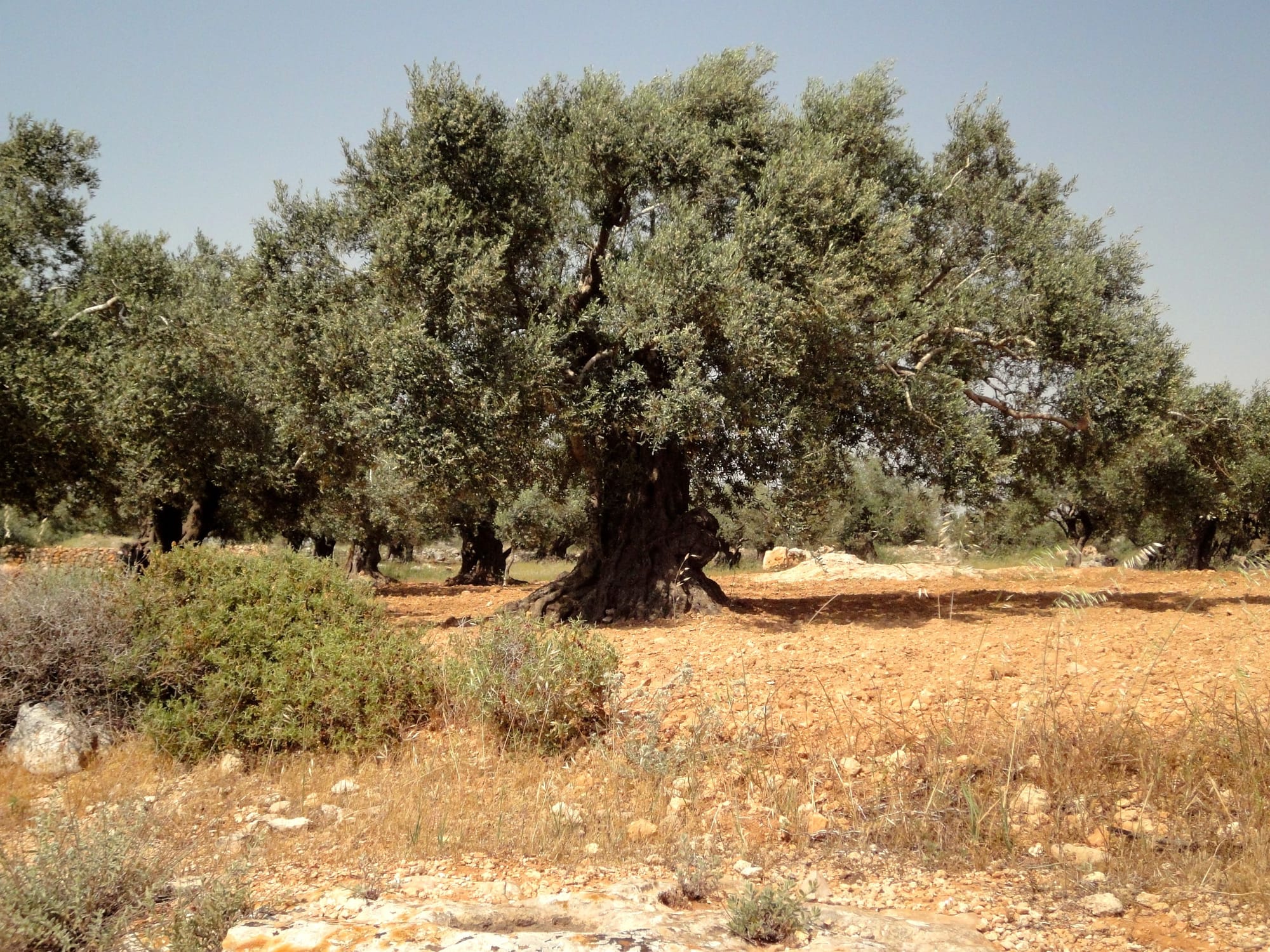
Yesterday, March 30th was Palestinian Land Day, an opportunity to reflect on the settler project of land theft from indigenous peoples (including here in Australia), and an important day to reaffirm connections to country.
Palestinians, both inside Israel and across the occupied territory, mark this day by holding protests and vigils and planting olive trees to reaffirm their connection to the land. The protests are often met with brutal use of force by Israel.

Vivien Sansour, founder of the Palestine Heirloom Seed Library spoke to Democracy Now and decried the wider ecological movement's silence on the destruction of Gazan soil, trees, and aquifers – the very stuff life itself depends upon.
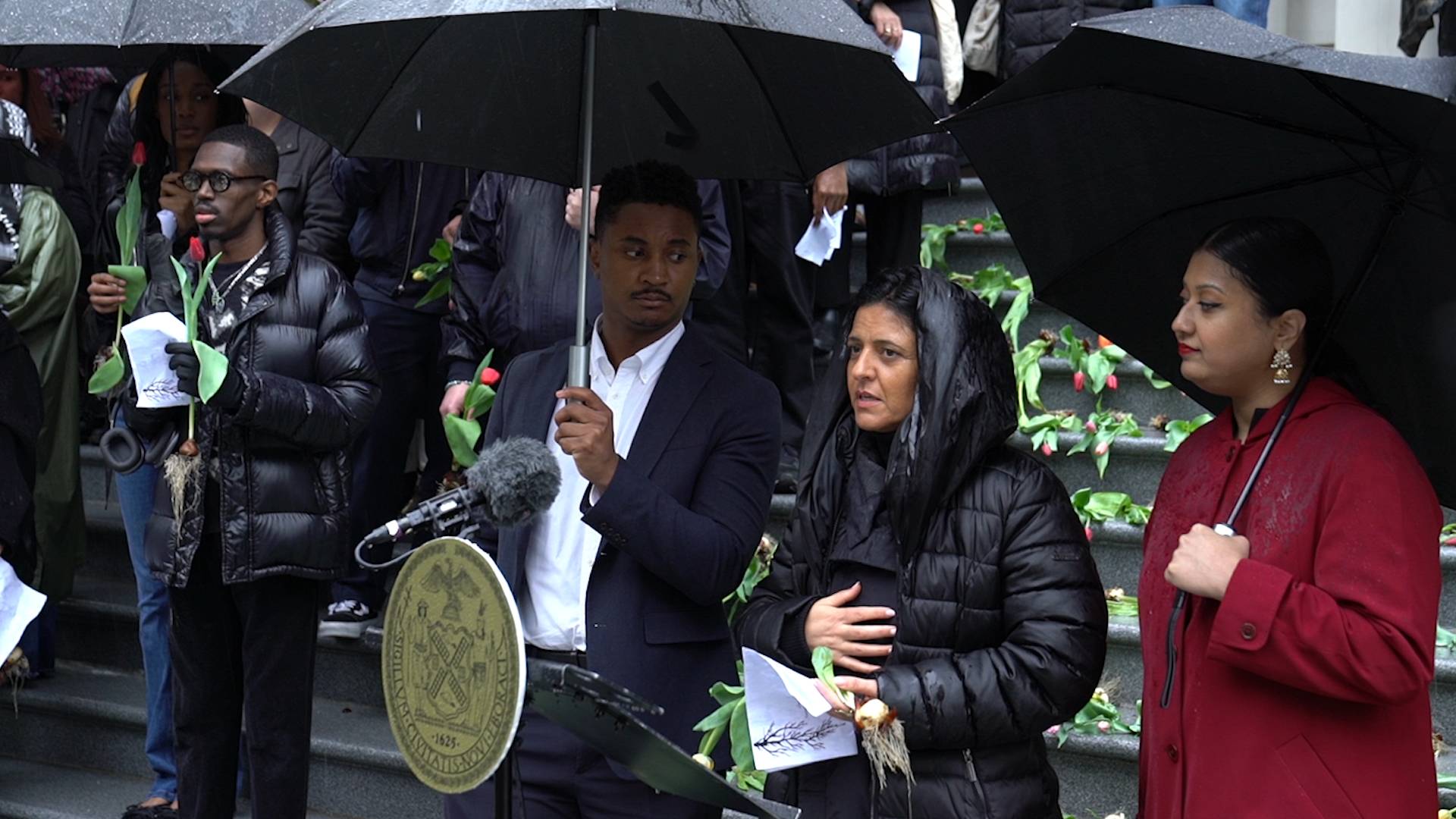
Before we get into the main links I want to draw readers' attention to several land-based climate events that have not received sufficient attention of late. The first is the massive El Nino drought that has affected parts of Africa so-far this year, breaking records.
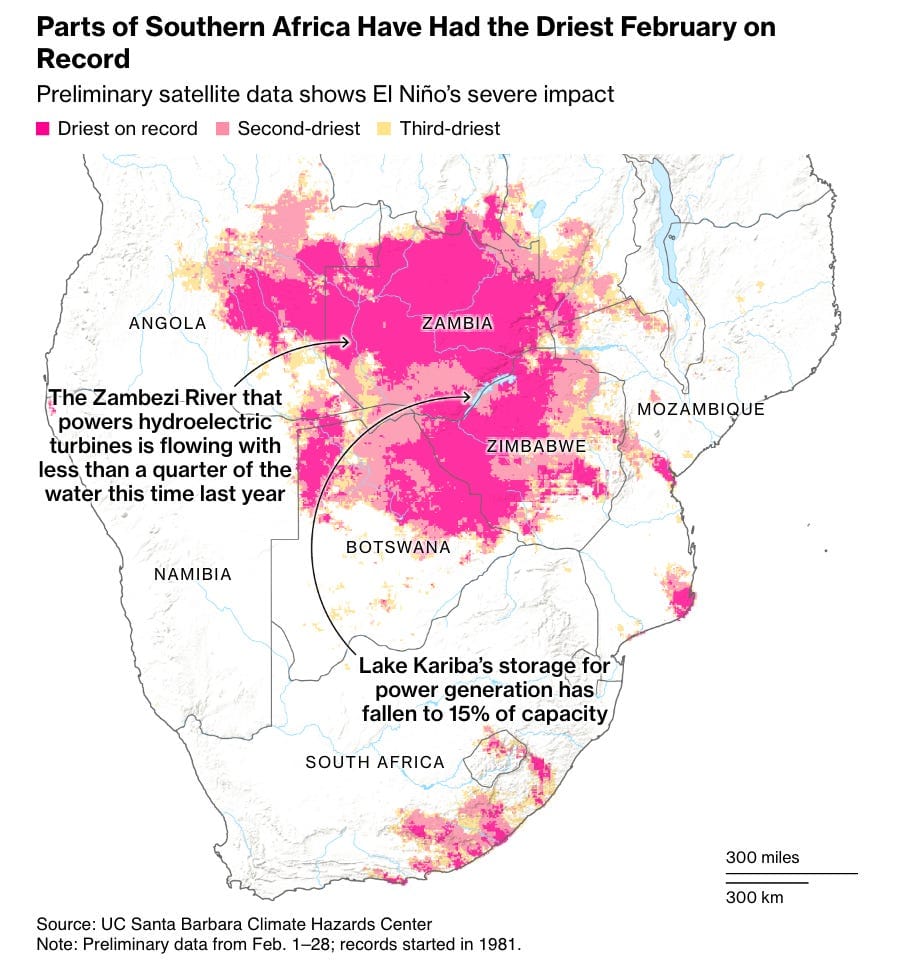
The drought has been so severe that it is threatening food prices and reducing energy production:
The dry spell, blamed on the El Niño weather phenomenon, is the latest indicator of how severely Africa is being impacted by extreme weather events that scientists say are becoming increasingly frequent and severe because of climate change — even though it produces far less global-warming gases than developed regions. Zambian President Hakainde Hichilema last week declared the drought a national disaster — an estimated 45% of planted areas have been destroyed just as the staple corn crop should be maturing. In Zimbabwe, some farmers have given up trying to grow and harvest their crops, allowing cattle to graze on what’s left. Water flows in the Zambezi River, which powers turbines that both nations rely on for electricity, are less than a quarter of what they were a year ago.
Bloomberg story on it here from a few weeks ago: https://archive.is/uCtVt
New precision calculation of the impact of increasing temperatures on coffee production
In the context of Brazilian coffee production, this study demonstrates that extreme temperatures not only reduce yields but also shrink reported harvest area due to plant death and farmers’ selective harvesting. …The analysis reveals both a direct effect of extreme temperatures on biophysical yields and a multiyear plant death effect, and supports a more comprehensive understanding of how prices, weather, and adaptation interact across many perennial crops.
https://www.journals.uchicago.edu/doi/abs/10.1086/726312 (Paywalled)
Plus the price of chocolate is set to soar as Cocoa futures pass $10k/tonne
Poor weather and disease have slashed crop yields in Ivory Coast and Ghana, which together produce more than two-thirds of the world’s beans. Decades of low prices have left cash-strapped west African farmers unable to invest in their plantations. As a result most are planted with old, decaying trees that are more vulnerable to disease and extreme weather. This has created a global cocoa shortfall for the third year running, driving an unprecedented price rally. Two months ago cocoa traded in New York at below $5,000; a year ago it was less than $3,000. London cocoa futures have more than doubled since the start of February and more than tripled since this time last year.
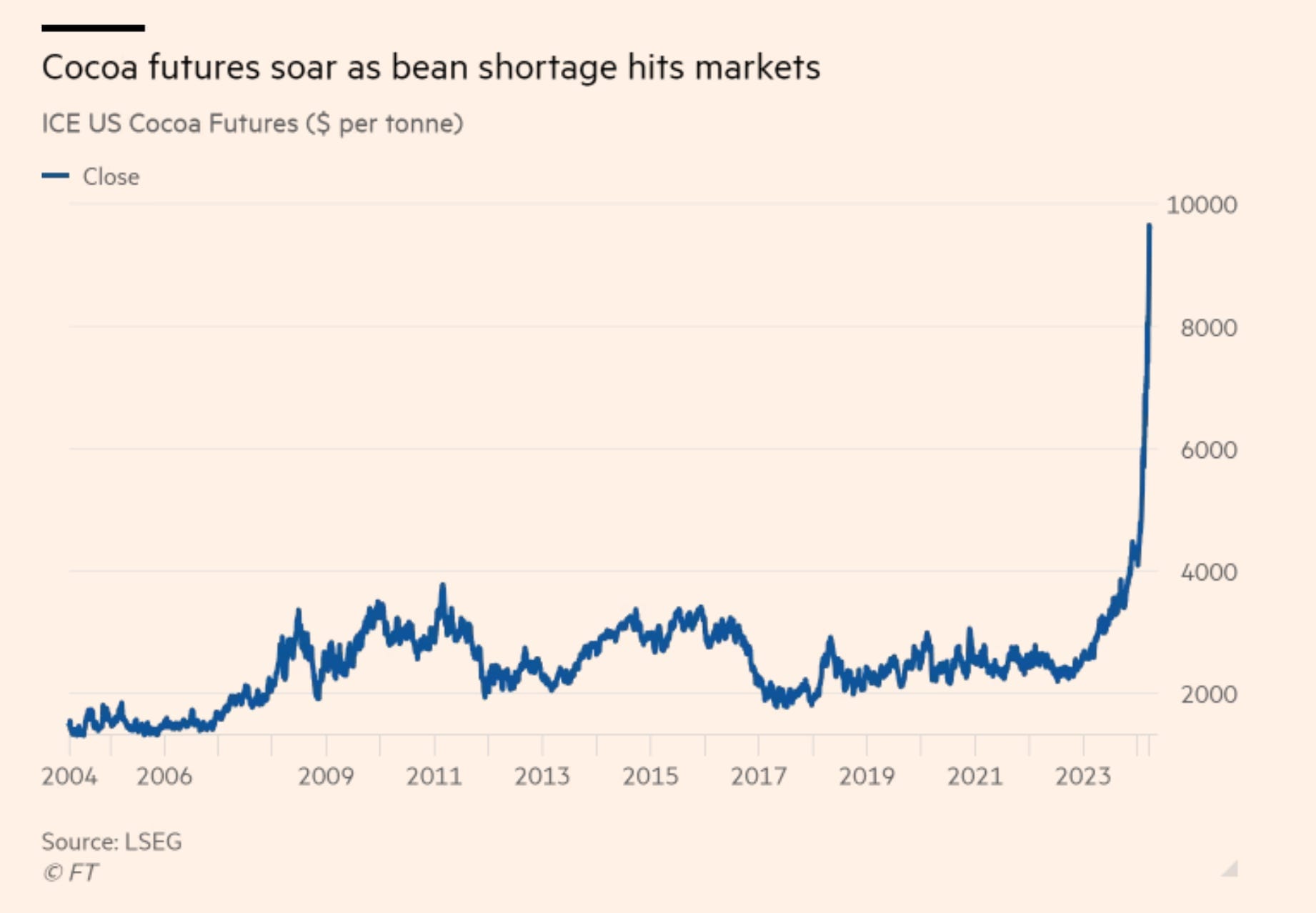
You can read the FT story here and all about the panic it's causing in chocolate producers – https://archive.is/YnZH7
So that's just a few of the latest examples of the massive disruptions to nature-reliant commodities and the human systems that depend on them, and that's barely at 1ºC of warming. An important reminder of the urgency of action, and, once again that The Economy depends on nature, not the other way around.
GDC and games sustainability
So I wrote the other week about not making it to GDC this year, and the cost of all those flights from those who did. Since the conference wrapped up, GameIndustry.biz has reporting that nearly 30,000 people attended this year (!!) which was more than the figures I used in my calculations. Worth considering what a constant increase in attendee numbers suggests about the sustainability of this sort of conference.
But the main thing I wanted to highlight was the lack of major sustainability announcements this year. Perhaps I missed some smaller ones, but there was definitely nothing remotely close to last year's Xbox/Fortnite energy measurement and reduction efforts. Of course we can't expect this level of achievement every year, but the conference seemed pretty quiet from down here (if I missed something important, do let me know!).
But it seems the critical issue of the industry's long term compatibility with a liveable planet only recieved a couple of talks, and a few roundtables this year. Is anyone speaking about climate risk to game business leaders? Do they know about the EU CSRD that's going to be mandatory for a lot of them? About the new IFRS S2 standard for reporting? AfterClimate's Game Industry Sustainability Benchmark 2023 made it very clear late last year that plenty of big games biz are still not fully aware of the risks.
So is this really good enough from our peak industry event, or am I missing something? I am really keen to hear your thoughts and impressions if you went.

Corporations dumped by SBTi for failing to deliver
The current gold-standard for corporate net zero targets has dropped over 200 large companies from their "approved" list – showing that the organisation is willing to call out under-performance. Could do with a bit more of this approach elsewhere TBH.
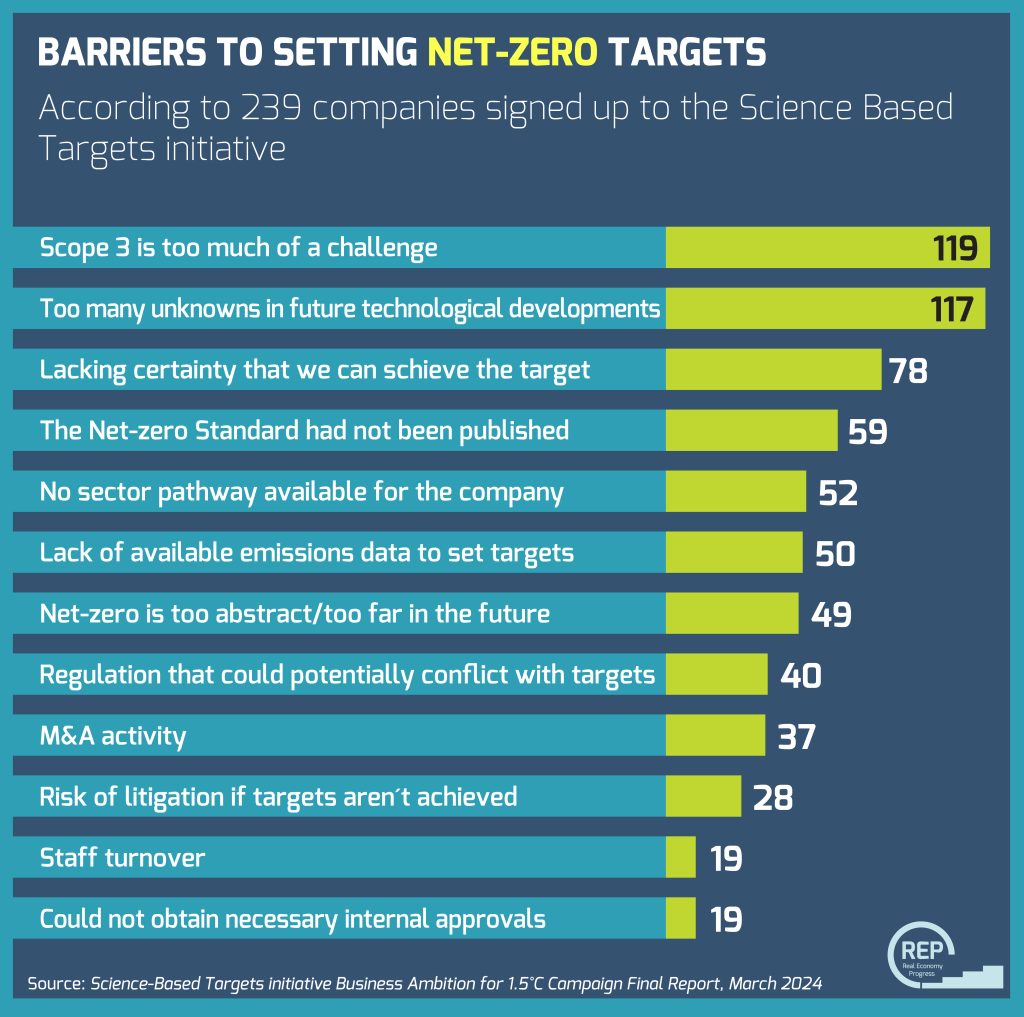
Hannah Ritchie’s chart of the 2020 US Household Energy Survey
It's a bit tricky to decipher this chart because it's not clear to me how they produced it, but it's interesting nontheless. It's not the sort of chart that we can extrapolate out from "average electricity use by household ownership of a particular technology" – but it does give us a sense of the difference between households that own "TVs, audio, consoles" and those that have EVs, or air conditioning, etc.
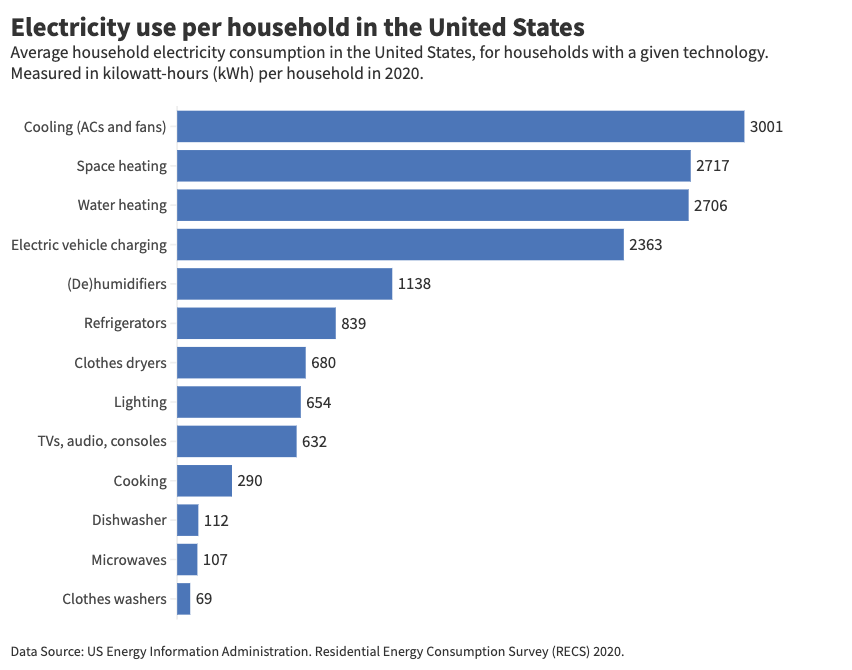
Check out the full post for Ritchie's analysis – the takeaway is environmental comfort comes with a pretty high electricity cost. It was fun to see games popping up there though.

Andrew Dressler talks about the cost dynamics of the renewable energy system buildout
The key insight is that building new renewables is the same price or even cheaper than continuing to use existing fossil fuel systems, riiiiiight up until we are replacing that last 10% of power systems. Price is of course not the only problem we face – it's also a politics problem. But at least cost is a problem for the future, not the present, as most of the world isn't even close to this this level yet.
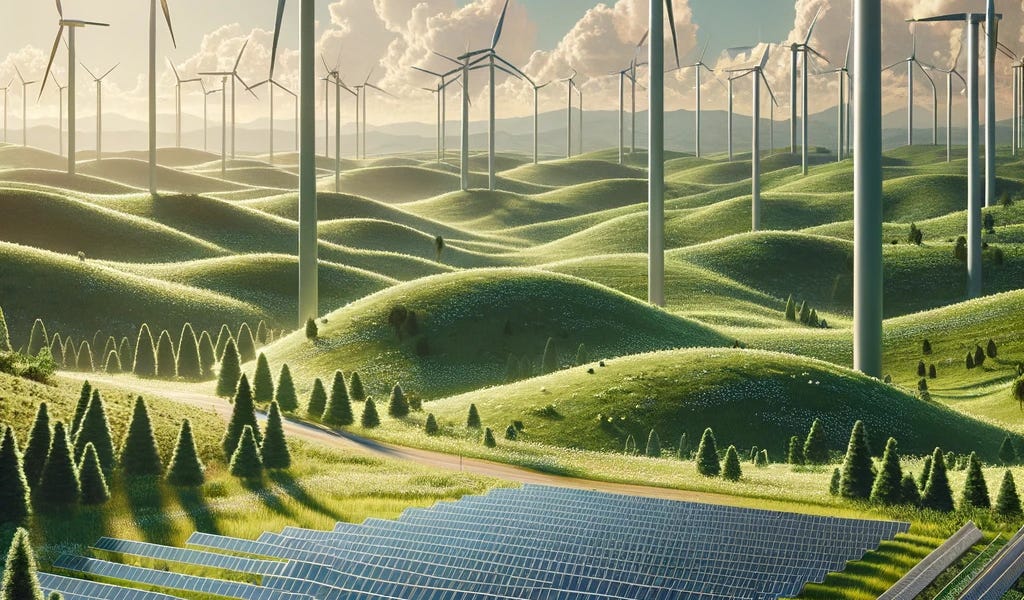
Also at The Climate Brink substack, Zeke Hausfather brings a ton of clarity to the challenges of reforestation and forest preservation, and their interaction with CO2 credit markets. Hugely recommended for anyone who has bought or considered buying carbon credits.
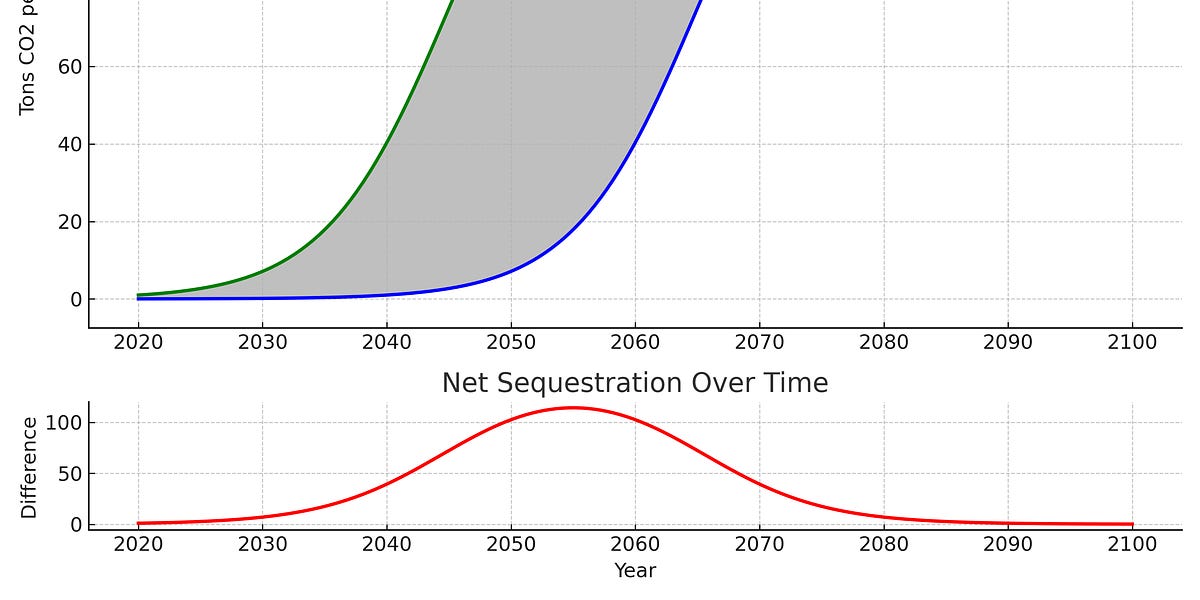
Another counter-intuitive finding
Who knew there could be more negative effects of planting trees (besides the biodiversity issues from planting the wrong kind and the durability issues above)? Sadly, we can now add the effect of changing the albedo of landscapes with dark-coloured forests that soak up sunlight instead of bounding it back into space. Not that this is an argument for deforestation, of course, but to highlight the complexity of accurate, informed decisionmaking.

eWaste isn't going away
“A new UN report finds that in 2022, humanity churned out 137 billion pounds of e-waste—more than 17 pounds for every person on Earth—and recycled less than a quarter of it.”

Are sports unprepared for a hotter climate?
The Technology Carbon Standard (proposed)

Amazon is telling porkies about rates of packaging recycling

Thanks for reading Greening the Games Industry.




